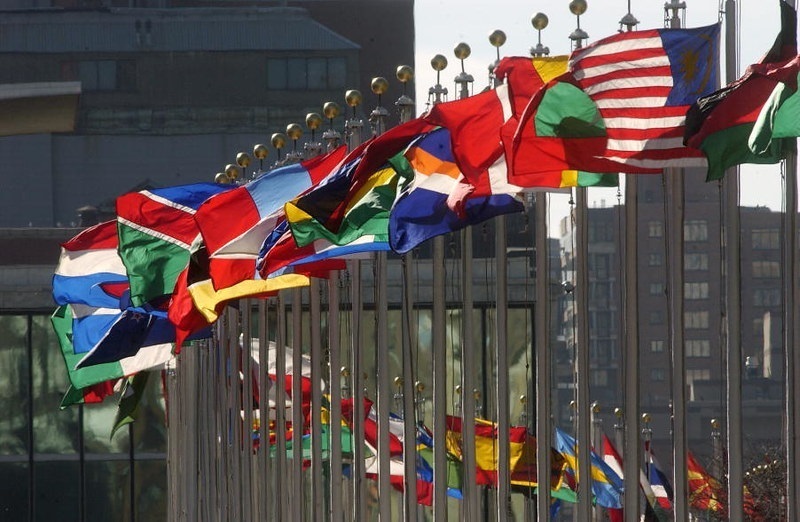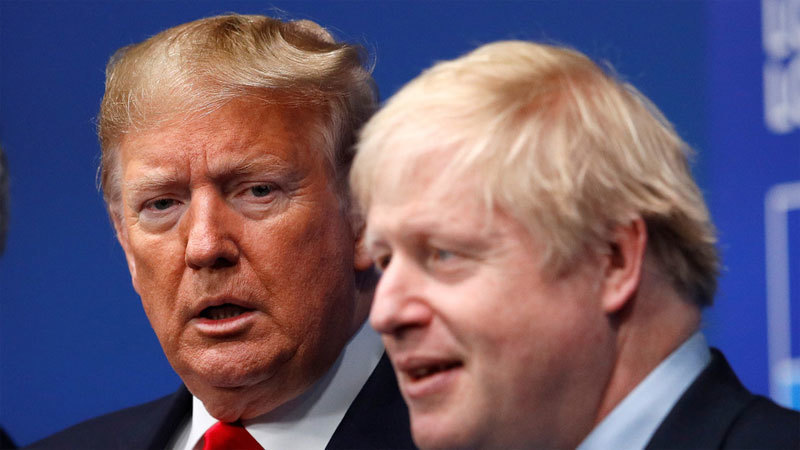 |
|
The post-pandemic world is "a world that is less open, less prosperous and less free".
|
The post-Covid-19 era will witness the rise of nationalism and a step backward of Global Governance.
In nature, Nationalism and Global Governance are two closely related factors, but in inverse proportion: When the roles of nations are upheld, this means that the role of and the influence of multilateral institutions in global governance such as the UN, WTO, WB, IMF, WHO ... is reduced respectively and vice versa.
Theoretically, Nationalism and Global Governance relate to the two common patterns of theory of international relations: Realism and Liberalism.
In short, realists argue that states, not any other intergovernmental or supranational organization, are the main subjects of the world order. The world we live in is essentially an out-of-order world in which nations seek ways to protect their interests so competition, confrontation or even conflict among them is inevitable.
Liberals share the realist view of the nature of nations. They believe that although there are differences in interests, countries can still find common ground and compromise to cooperate with each other, especially in matters related to economic benefits; and cooperation is better than war. For liberalists, states' participation in regional and international organizations, with binding rules, plus increased cohesion and interdependence among nations through trade, investment, tourism ... will reduce conflict among nations and therefore the world will have more peace.
However, in the real world, there is no exclusion of one school from the other, but both schools coexist. The difference is only in which country, which region, in what context and at what stage, this trend is on the throne compared to the other trend.
After the end of the Cold War, Liberalism and Global Governance rose, but only for a short time, thanks to the following factors:
(i) Expectations that the United Nations and important international organizations would play a greater role in addressing global issues, especially those related to security and development;
(ii) The rise of many new global challenges that require a global approach, as well as global governance mechanisms to address; and
(iii) The development of information technology, especially the internet, the increase of interdependence among nations helps increase awareness of people and countries about the urgent need to consolidate and increase global governance.
However, expectations were high but global governance did not produce the expected results for many large countries, as well as small and medium developing countries. The biggest "shock" for global governance is President Donald Trump's strategy with the priority of "Make America Great again!" (MAGA). On September 24, 2019, in his remarks to the 74th session of the United Nations General Assembly, President Trump declared: "The future does not belong to globalists. The future belongs to patriots" - essentially nationalists who are called by another beautiful name.
Along with "MAGA" is America’s "turning away" from global governance such as withdrawing from the Paris Agreement on global climate change; from the United Nations Educational, Scientific and Cultural Organization (UNESCO), cutting tens of billions of US dollars in annual development aid budgets for developing countries; cutting hundreds of millions of US dollars of annual contributions to the UN budget, that made this organization fall into financial crisis and many UN activities cancelled. Most recently, US President Donald Trump cut the annual financial contribution of up to $900 million to the World Health Organization (WHO) as he thought that this organization was "biased" in a disadvantageous way for the US and did not fulfill its obligations in preventing the Covid-19 pandemic from spreading globally.
In fact, before Trump came to power, a new generation of nationalist leaders appeared in Japan, Turkey, Russia, China, the Philippines ...
The question is why they all pursue nationalism, but Trump's policies are "shocking" and noticed by the world? The reasons may be:
(i) Trump is a straightforward person so his words attracted the media that added “spice” to his words to lure readers.
(ii) The US and international politics at first thought that Trump would be like previous presidents who only made "strong threats" during the election campaign to attract more votes and would "do differently" when they hold power. Surprisingly, after coming to power, Trump has vigorously and thoroughly implemented his campaign promises and this has surprised not only his opponents, but even America's friends, allies and partners.
(iii) As the world's No. 1 superpower, and a nation that initiated, participated in and contributed enormous resources to global governance right from the very beginning, the US "retreat" has only made immense consequences, but also gaps that can hardly be filled in a short time.
 |
|
British Chancellor Boris Johnson welcomed US President Donald Trump at a NATO leaders’ meeting in Watford, UK, in December 2019. (Photo: Reuters)
|
What is concerning is that the nationalist trend will be increasing throughout the world, with very few exceptions, right after the end of the Covid-19 pandemic. This will directly affect the role of global governance at a time when international cooperation is more necessary than ever to overcome "post-Covid-19" consequences, as well as prevent similar pandemics or catastrophes in the future. There are three reasons to support this statement:
First, international institutions supporting global governance such as the UN, WTO, WHO ..., including military unions such as NATO, or supranational organizations like the EU are considered "outdated" when they were not designed to deal with a global pandemic like Covid-19. By the time of the pandemic, these organizations were almost completely helpless and their role became extremely weak.
Second, bilateral alliances, strategic partners or allies are not helping at the moment. Even in the EU, when the epidemic broke out, each member state could only take care of itself. The Russia-China strategic partnership was not much better when the two countries continuously adopt unilateral measures to minimize the travel of citizens of the other country.
Third, since the onset of pandemics, nations have emerged and acted as irreplaceable agents. The prestige of leaders of most countries from the US to Africa, from China to Russia, to Europe, to Asia ... has soared. On any TV program, at any time, it is always easy to see the anxious faces of national leaders. They directed and attended press conferences to provide information to their peoples about how the government is doing to minimize epidemics and minimize casualties with the aim of reassuring people - one thing that is absolutely necessary in times of crisis, war and disease. And this role will not diminish soon but continue even after the Covid-19 pandemic passes.
So in the post-Covid-19 time, what will be the format of the new global governance? It is temporarily outlined in some aspects as follows:
- The trend in which US reduces its role in global governance in the organizations such as UN, WTO, WHO ... will continue to accelerate. The US will place more emphasis on the strategies it initiates and plays a leadership role such as the "Open and Free Indo-Pacific Strategy ". Even in bilateral alliances such as the US-Japan, US-Korea and multilateral security pacts such as NATO, the US will not "contribute" on behalf of other countries, but will require sharing of obligations.
China, meanwhile, will do the same, seeking to exert influence, or expand its role in the initiatives, strategies, or organizations that it establishes or dominates, such as " the Belt and Road Initiative - BRI, Shanghai Cooperation Organization - SCO or Xiangshan Forum on national defense ...
- Global institutions such as UN, WTO, WHO ... will face the pressure of radical and profound reforms to suit the context of increasing unilateralism throughout the world, pressure from the US and the West, as well as budget cuts. America's "withdrawal" from global institutions does not mean that China can easily fill the gap because: (i) China needs time to prepare and is not ready to play a major and more outstanding role at the moment; (ii) The world is not ready to take on a new, bigger role of China; and (iii) American and Western opposition.
- As a result of a pandemic, and from a pandemic, any new global governance models, or any reforms to existing bilateral or multilateral institutions, must be added with binding provisions, giving these institutions the ability to alert, prevent, and respond to pandemics as much as possible.
- Military alliance treaties such as NATO, agreements to establish alliances, strategic partners ... in addition to the existing terms such as political, diplomatic and security - military support when one of the parties is attacked or threatened to attack by force, will soon be "upgraded" with some additional provisions to suit the new situation such as:
(i) Regularly update and share intelligence about each other regarding the emergence of new epidemics and how to cope with them;
(ii) Support, share information, research results and ways to deal with new infectious diseases; support each other in the production and supply of basic medical products and equipment such as antibiotics, antibacterial, protective clothing, breathing devices ...; access to strategic health stockpiles.
(iii) Support each other in setting up strategic reserves, uninterrupted supply of essential goods, serving production and people's needs in the context of some or all of the nations in the alliance could be "closed" for months.
The above measures will help revive and make existing coalitions with their real meaning, which is to help and protect each other both in wartime and in "peacetime" when dealing with epidemics.
Hoang Anh Tuan

The world in the post-Covid-19 era (Part 3)
Originally regarded as a "savior", the Covid-19 pandemic has created new skepticism, considering globalization as a "criminal" that spread the coronavirus epidemic across the globe and caused the current disaster.

The world in the post-Covid-19 era (Part 2)
Some questions must be answered clearly: Where and in what context did Covid-19 appear? Were the World Health Organization's (WHO) detection and warnings timely enough in preventing the pandemic outbreak?

The world in the post-Covid-19 era
The coronavirus pandemic has not passed, but it has been and will leave severe consequences in all aspects of human life, as well as international relations.
 American scholar Stephen Walt, a realist and an ardent supporter of nationalism, said the post-epidemic world is a world that is less open, less prosperous and less free.
American scholar Stephen Walt, a realist and an ardent supporter of nationalism, said the post-epidemic world is a world that is less open, less prosperous and less free.